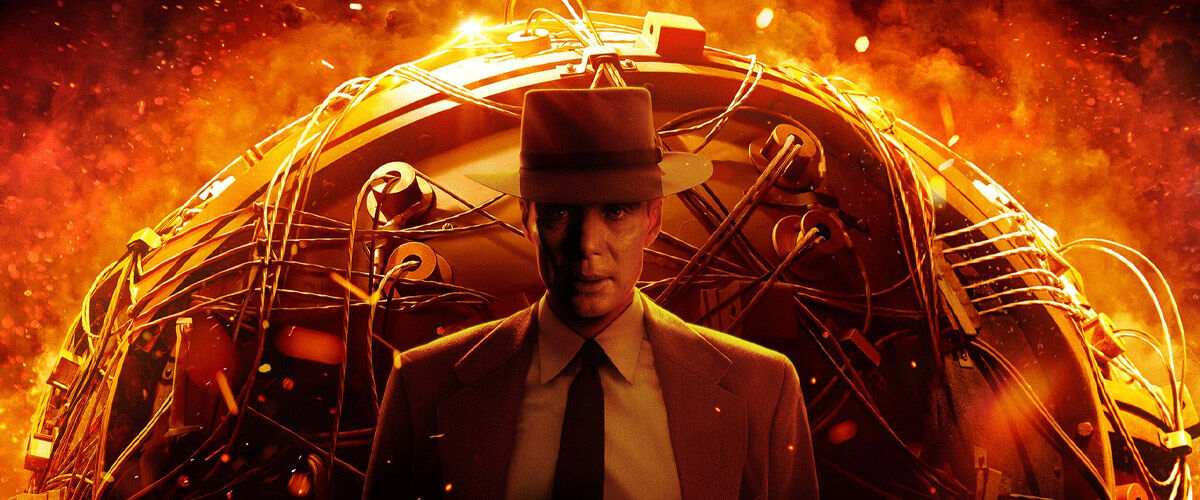Every movie Christopher Nolan has done before has been in preparation for this, from slowly building up a hero and then tearing him down (The Dark Knight Trilogy), retelling a historical event but in a more stylistic yet bombastic manner (Dunkirk), playing with non-linear narratives (Memento, Tenet), to mixing music and audio as narrative punctuations in a story, which makes his latest masterpiece, Oppenheimer, all the more impressive and one of the best movies to hit the big screens in the last 50 years.
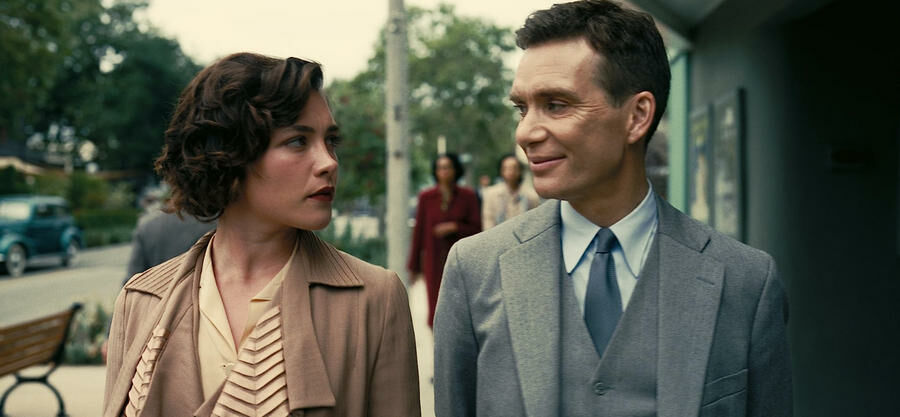
A biographical thriller of noted theoretical physicist J. Robert Oppenheimer (Cillian Murphy), based on 2005’s American Prometheus: The Triumph and Tragedy of J. Robert Oppenheimer, the 180 minute long opus is a densely packed snapshot of one of modern mankind’s more controversial figures – the Father of the Atomic Bomb. As head of the Manhattan Project, the scientist led the multi-year project during the second World War that ultimately produced the world’s first nuclear weapon.
His name, as well as that of the infamous project, are likely more well-known than the details surrounding the Trinity test aka the world’s first nuclear explosion performed as a test, and Nolan effortlessly depicts the careful creation of one of modern history’s first hero, and the subsequent vilification of the same person who wouldn’t embrace the arms race that he effectively accelerated in the first place.
Naturally, this isn’t a simple retelling and as biographies go, Oppenheimer takes certain liberties as it doesn’t depict his childhood or younger years, and instead branches out into two timelines. ‘Fission’, filmed in colour, charts a rather arrogant and at times pompous Oppenheimer as he finds his heroes as a student, and makes his name in theoretical physics and gets recruited by Major General Leslie Groves (Matt Damon) of the U.S. Army Corps of Engineers to run the Los Alamos Laboratory that designed and developed the first atomic bombs. ‘Fusion’, depicted in black and white, except for a segment when the timelines converge, takes place about a decade later in the 1950s, and centres around one-time U.S. Atomic Energy Commission (AEC) chairman Lewis Strauss (Robert Downey Jr.) and his contemptuous relationship with Oppenheimer.
Even with the lengthy runtime, the intense subject matter, of a man seeking knowledge and having his visions realised, means the film glosses through much, even as it details the challenges he faced in getting to the Manhattan Project. Oppenheimer’s tenacity in overcoming his association with communism that his family, friends and even mistress were entangled in, is shown as an oversight that you know will be addressed later, while the assembly of scientists that he is surrounded with feels pretty much like a roll call. Interestingly, Nolan focuses more on the details that you probably won’t read much about his history books, of his relationship with his friend and psychiatrist Jean Tatlock (Florence Pugh), and later on, his wife, Katherine ‘Kitty’ Puening (Emily Blunt).
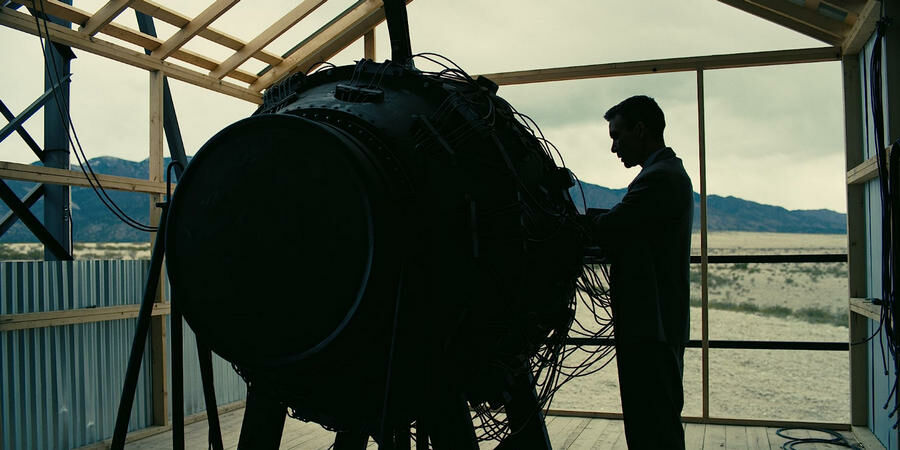
On one hand, Nolan depicts the relationship with Tatlock as a sexual one, like a vice that he cannot escape, whereas Puening comes across as manipulating him into a marriage by design. But even without the physical intimacy with his wife shown, both relationships have come to define the Oppenheimers. While her role as Tatlock is short, Pugh, who is almost naked in many of the scenes she is in, is able to draw out Murphy’s passion and intensity in life, and it is through her that we first hear Oppenheimer’s most famous words uttered right at the start, “Now I am become Death, the destroyer of worlds.”
Blunt’s Puening is the wife turned mother turned alcoholic and she almost seems like a one-dimensional character, if not for the fact that Blunt pours so much anger, resentment and love into her character, and look out for that one moment that almost all actors hope for, to have a scene written that props up her character, and allows the actor to relish in a scene that is so satisfying, especially when played across another actor, in this case, the charming but ever so annoying-when-he-wants-to-be Jason Clarke as AEC special counsel Roger Robb.
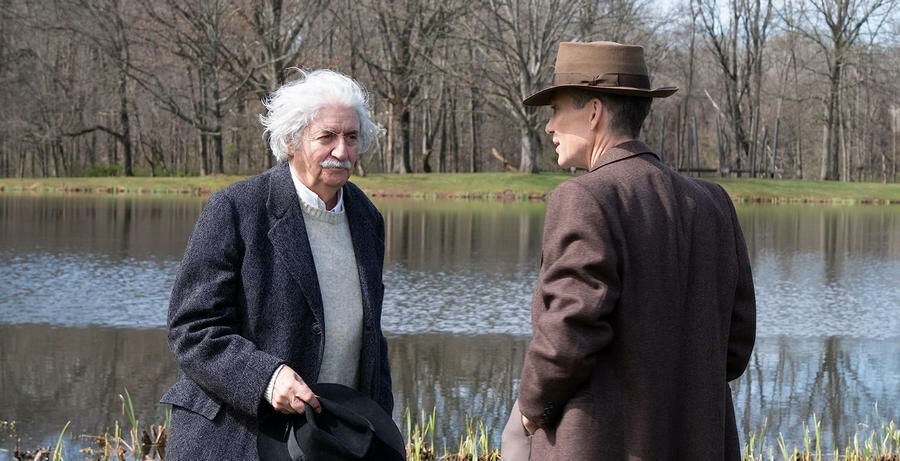
In fact, the film has appearances and cameos galore and no matter how big or small, the likes of Kenneth Branagh (Niels Bohr), Josh Hartnett (Ernest Lawrence), Matthew Modine (Vannevar Bush), Casey Affleck (Boris Pash), Rami Malek (David Hill), David Dastmalchian (William L. Borden, Tom Conti (Albert Einstein) and more all relish in their short or slightly extended screen time in this ensemble cast, to bring their A game. Some, like Hartnett and Benny Safdie (Edward Teller) have a much bigger presence, but Malek and Dastmalchian shine in their small roles, and even then, none are as memorable as the uncredited character actor as President Harry S. Truman.
And to his credit, Murphy stands up there with his amazing peers, showing the ferocity of a man on a mission, believing that his work is there to end all wars, working to save mankind from a destruction that he will eventually discover that he was responsible for. In the quiet moments, Oppenheimer’s self-assuredness is as intoxicating as it is charming, because we believe in his vanity as much as we realise his naivety.
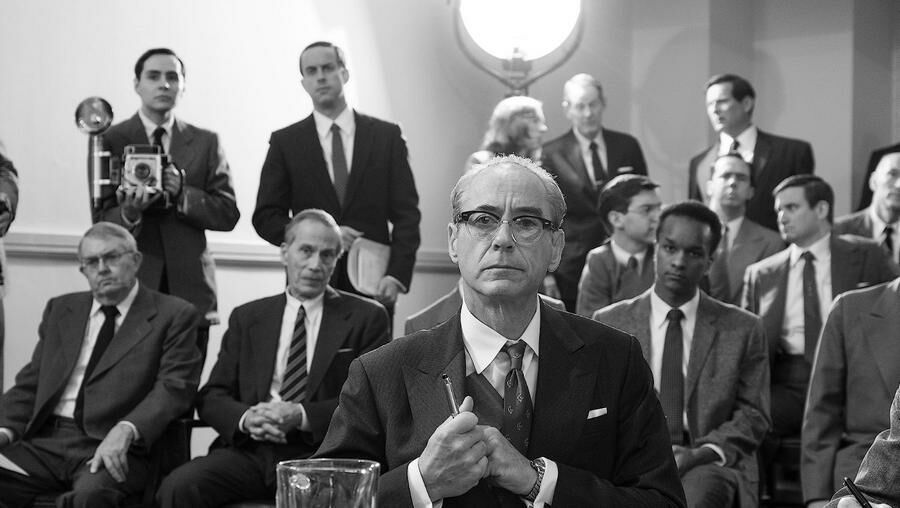
But while Murphy channels the best acting in an already storied career, the most explosive performance goes to Robert Downey Jr., who is simply malicious as Strauss. Displaying a level of simplicity and charisma at the start, Nolan peels back the layers of a man immensely threatened and slighted by sheer genius, and Downey Jr. depiction of Strauss’ comeuppance is so simple yet effective, it’s the very reason why the film’s fourth act is so satisfying – like a well timed detonation.
Credit must also be given to composer Ludwig Göransson in his second outing with Nolan, whose use of sound, music and accompanying instruments bring audiences right into the mood. For a film made with any CGI, with no climactic fight scenes or showdown, his deft musical choices brings out the mood, from Oppenheimer’s moments of clarity, bouts of ingenuity to what is possibly descent into uncertainty, especially towards the end when his work proves to be a success, and is used to destroy two cities and kill tens of thousands.

It’s somewhere here that Nolan shows what he said before, that you either die a hero or live long enough to become the villain because while the people don’t know better, the institution that is the United States of America gets struck by fear and McCarthyism, and suddenly, Oppenheimer finds that his past links to communism are coming back to haunt him, and his security clearance is being questioned. Because the events have already happened, the ending doesn’t come as a surprise yet Nolan is still able to draw audiences in.
Like a fuse that leads to an ultimate detonation, Oppenheimer is a slow burn but somewhere along the way, you will be drawn in to the strong visuals, score and acting because Nolan and team can always stick to the landing.
GEEK REVIEW SCORE
Summary
A simple story told in an amazing and powerful way, Oppenheimer is unrelenting yet riveting, offering a fiery look at one of history’s most controversial characters that you might end up caring for.
Overall
9.9/10
-
Story - 10/10
10/10
-
Direction - 10/10
10/10
-
Characterisation - 10/10
10/10
-
Geek Satisfaction - 9.5/10
9.5/10

